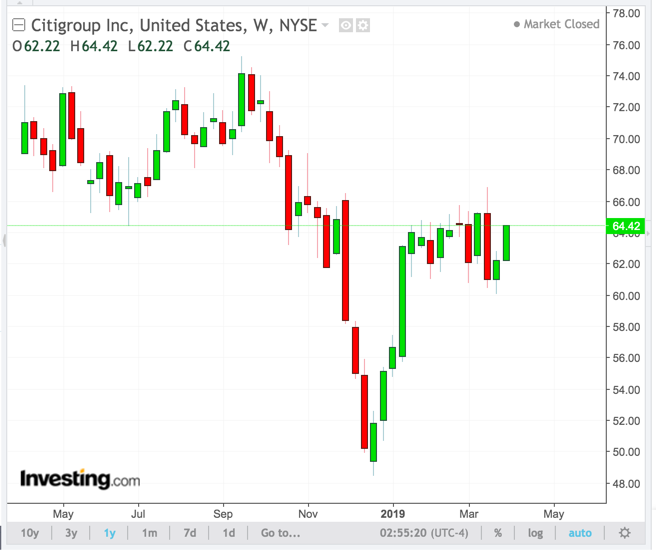Investing in banking stocks hasn’t been popular during the past decade. And the logic behind investors’ indifference made sense. After the 2008 Financial Crisis, banks remained under tight regulatory control, which forced them to mainly shift focus to fixing their balance sheets and avoiding risky lending practices. As a result, over the past decade, the KBW Bank Index, the broad benchmark to represent banking stocks, has underperformed the S&P 500 by 8%.
Also, the flow of bad news from the banking sector didn’t end even after the apocalyptic events of 2008, caused by lenders’ greed and bad credit decisions. From the revelation of Wells Fargo's (NYSE:WFC) account frauds, which revealed the existence of millions of fake accounts, to Goldman Sachs' (NYSE:GS) role in a recent Malaysian corruption scandal, there has been a constant stream of negative news from this sector that has kept cautious investors on the sidelines.
But that sour mood about banking stocks doesn’t mean that investors should paint all the names with the same brush. Shares of some of the largest lenders have become attractive after years of restructuring efforts, within a more robust regulatory environment. In this space, we particularly like Citigroup (NYSE:C).
Sustained Cost-Cutting Improving Citi Outlook
If you're looking to reenter this sector, we think Citigroup is one of the best banking stocks to own right now. We derive our optimism from the lender’s sustained cost-cutting during the past decade and re-balancing of its portfolio. These efforts are beginning to pay off and the bank is seeing improvement in both its revenue and profit, helped by the strong U.S. economy, a low unemployment rate, and robust consumer spending.
After going through a sharp correction in the last quarter of 2018, Citigroup shares are back in the game, rising 24% this year, about double the gains of the KBW Bank Index that rose 13% in this period. The stock rose 3.4% on Monday, and was little changed yesterday when it closed at $64.42.

With this improved macro backdrop, CEO Michael Corbat’s success at sustainably cutting costs during the past decade has had a big role in improving the lender’s health. These efforts are reflected in the lender’s rapidly improving efficiency ratio, or expenses as a percentage of revenue. This metric has come in at less than 60% for the past four years, making Citi the only major bank able to maintain such a winning streak.
The lower this ratio, the better the lender’s financial health as it shows how much money a bank has left over to set aside for loan losses, dividends, and buying back stock.
Citigroup’s last quarterly earnings report showed the bank is in a good position to quickly adjust if market conditions worsen. In the Q4 when its trading volumes declined sharply, the management was quick to slash spending, led by a steep drop in compensation. Pay across the bank was 14% lower than it was in the third quarter. Due to this flexibility, the bank was able to beat estimates for earnings in the quarter despite a sharp 21% drop in its fixed-income trading.
Another incentive to own Citigroup shares is that the lender has made returning capital its top priority, a practice that was discontinued after the 2008 financial crisis. Its quarterly dividend payments are growing rapidly since 2016. They rose more than 40% in 2018, taking the quarterly dividend to its current $0.45 a share with an annual dividend yield of 2.9%.
Bottom Line
In the short-run, the economic headwinds that are gathering pace around the globe may discourage investors from taking chances on banks whose growth is closely tied with the general health of the economy. But for long-term investors, Citigroup stock is a good choice, given its earnings momentum, growing dividends, and improving balance-sheet quality.
